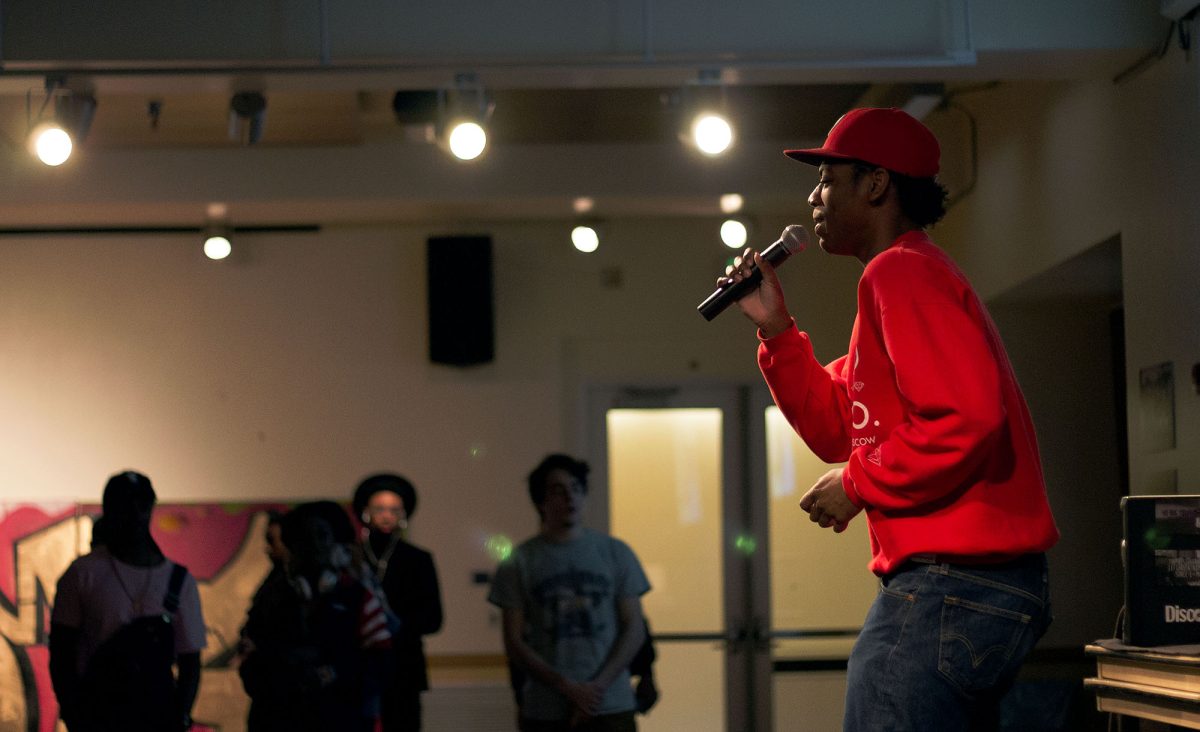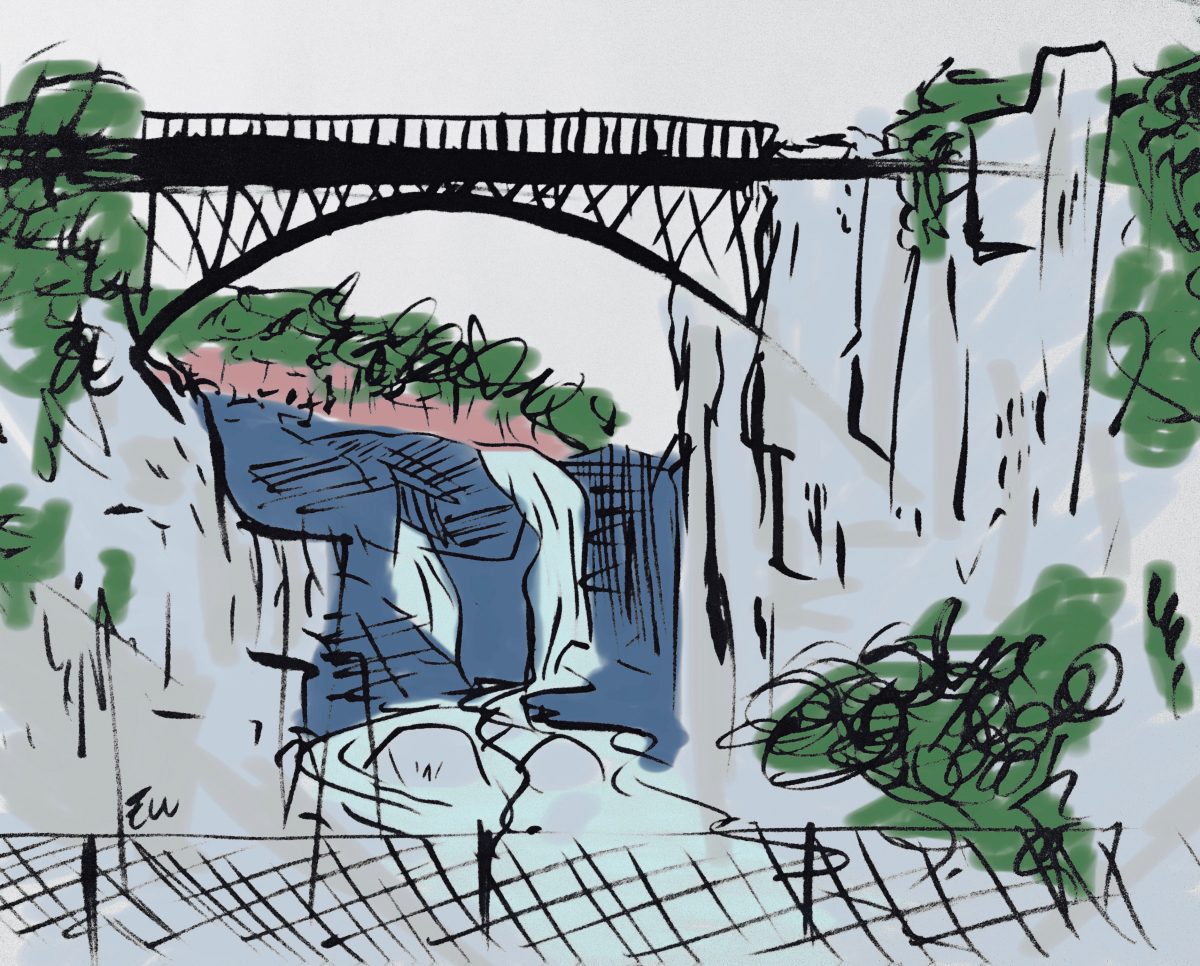Words by Sydney Padgett, Illustration by Erick Wonderly
[dropcap]W[/dropcap]e reach our third security checkpoint, framed by emotionless guards and wrought iron cell doors. The woman examining my ID offers what feels like a pitying look, as if she is granting me permission to turn back now. My racing heart and sweaty palms also tell me to do so. Indeed, we must have been quite a disruption to the daily routine: We were 12 students, dressed in baggy clothes, armed solely with a pencil and a flimsy notebook, entering Oregon State Correctional Institute (OSCI) for our first class of the term.
As we enter the classroom, it is evident that our peers inside are just as anxious. We awkwardly shake hands, skeptical of each other’s abilities to transcend societal walls.
As disjointed as we all felt in that moment, I had little idea that this would be the most powerful classroom of my entire career – the space where I would break down my own borders, uplifted by the honest voices of my counterparts and classmates. This would be the classroom where I would find my voice.
This non traditional classroom was the University of Oregon’s Inside Out Program. This prison exchange collaboration brings together collegiate and incarcerated students to transcend social barriers through engaged and informed dialogue. For my class, it challenged our traditional education, emphasizing the idea that education which occurs over social boundaries is transformative, allowing problems to be approached in new and different ways.
Our class, made up of 12 Clark Honors College Students, 12 OSCI students, two teacher assistants, and our professor, Anita Chari, explored the possibilities of expressing one’s political agency, specifically through the form of autobiography. Initially, the idea of autobiography in this setting terrified me. I was scared my own story was insignificant. My privileged life had never given me a reason to fight.
But then, the stories came. We read stories, we wrote stories, we embraced stories. As tentatively as we united our polar opposite worlds, we began to share our own stories.
My personal revelation arrived during one of our most emotional classes of the term. I was discussing La Frontera: The New Mestiza — an autobiography written by Gloria Anzaldúa that explores the physical and sociological impediments that define our society — with my closest friend in the class, Jeff. Though he had lived more than half of his life behind bars, we defined ourselves in very similar ways. He was a 34 year-old Portlandian, competitive as hell and intoxicated by the smell of fresh Oregon air. It would be inappropriate to compare our pasts synonymously, but I had never met someone as passionate and as kindhearted as Jeff. His triumph reflected so much of what I had also overcome.
When Jeff began telling me about the physical border that had defined his entire life, the words came from a place that was dark and seemingly forgotten. He was so honest. I saw the darkness in his eyes as he described what 13 years of heroine had destroyed. His delicate glasses began to fog as he remembered and shared the deaths he had witnessed, the wretched pain of seeing the life leave his girlfriend’s eyes. They were not words of regret, or even of tragedy, but of revelation.
It was as if he was seeing himself as a human being for the first time in 20 years — a human being with an identity, with a journey worth telling.
When I got home that night, I cried to my perplexed boyfriend. And when I recognized his confusion, I was increasingly overwhelmed with my inability to process the information I just heard. I was scared to accept the fact that Jeff’s voice was among many that had been marginalized and stifled for years. I was scared of all the pain I had never known, the pain I had never shared.
It was at that moment that I realized that there is no such thing as an insignificant story. Every student in that class was initially scared to define his/her identity based on the past, for several different reasons. But in powerful autobiographical works of Malcolm X and Angela Davis, and through profound explorations of self, it felt like we may have reached that place in ourselves that we were so reluctant to embrace.
I was fortunate enough to speak at our closing ceremony. Reading my poetry in front of such a broad audience was terrifying. My poem was about my life, my walls, and my journey. But it was also about the people surrounding me, a recognition of the bravery of the classmates that gave me the confidence to share my unfiltered writing. I was stripped down to the barest truths of myself, sharing them with a room of classmates I had met just ten weeks before.
Undoubtedly, the men and women attentively listening in a circle around me were more than classmates. When I think of each of their faces, I see their stories too. I see their beautiful words, transcending the walls that contain them today. Perhaps the hardest part of this entire experience is knowing that we went on this journey together as one, but the walls I broke out of to define myself and find my voice, were only metaphoric for half of the class.














